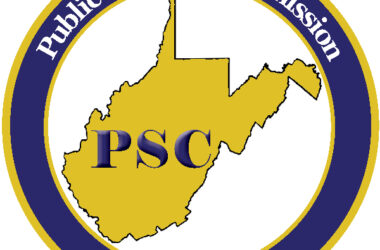CHARLESTON, W.Va. – Members of the interim Joint Standing Committee on the Judiciary heard an update on the West Virginia State Police (WVSP) Forensic Laboratory and DNA collection during their Monday meeting.
The first speaker to address the committee was Sheri Lemons, director of the WVSP Forensic Laboratory.
According to Lemons, the laboratory operates on a $7.5 million annual budget, employs about 60 civilian employees, and sees about 10,000 cases every year.
“We have the lowest turnaround time [on cases] that we’ve had since I’ve been at the laboratory, and we also have the lowest backlog,” Lemons stated. “I’m very thankful for that.”
Following Lemons’s introduction, Melissa Runyan, WVSP forensic lab database supervisor and state CODIS (the FBI’s Combined DNA Index System) administrator, then spoke about the state’s DNA database, DNA collection and CODIS, and answered legislators’ questions.
In prior legislative sessions, bills were written that would have allowed the collection of DNA under certain circumstances, such as having been arrested on certain felony charges, but were not passed. However, the possibility exists that similar legislation may return in a future session.
In response to questioning from committee members, should similar legislation return, about how DNA is collected and stored, Runyan explained that only specific identity markers are gathered for forensic testing.
“These have been identified as only identity markers,” Runyan said. “So, they are unique to an individual, but they can’t tell you anything about their medical history or their genetics – how they look or anything like that.”
“No personal identifying information is added to the DNA database along with the DNA profile,” Runyan continued. “The actual sample is not in a database, so [DNA scientists] can’t pull that sample to do their own testing on it. It’s just a bunch of numbers that are added to these certain markers, and then if a hit occurs, or a match occurs, it’s looking at those –basically matching numbers to numbers.”
The actual DNA samples are stored at the West Virginia state lab in a secure location, Runyan stated.
In response to a question from Del. Larry Kump, R-Berkeley, about DNA collection and the 4th Amendment to the U.S. Constitution (protection from unreasonable searches and seizures), Runyan said that the Federal DNA Identification Act of 1994 established a national DNA database and outlines who is allowed to give a sample.
“We are allowed to put relatives of missing persons into the DNA database as long as they have voluntarily consented, and we have to be able to take that out of the database either if they request it or if the missing person has been identified,” Runyan said.
Additionally the U.S. Supreme Court ruling in Maryland vs. King addresses rights regarding the DNA database, according to Runyan.
In response to a question regarding the possible misuse of DNA by a bad actor once information has been entered into CODIS, Runyan stated that CODIS is not accessible through the internet, but the information uploaded into the state’s laboratory management system is connected to the cloud.
CODIS and the state’s DNA database are two separate systems, Runyan said, adding that every employee must undergo background checks and meet certain guidelines before gaining access to the either system.
All 50 states have an agreement to use CODIS, Runyan continued. Victim profiles are not allowed to be entered into CODIS, but DNA profiles of convicted offenders, arrestees, missing persons, unidentified persons and biological relatives of a missing person are allowed at the national level.
Each state determines what they will allow in the database, Runyan added.
“Some states go as far as allowing reference samples from suspects that are submitted to the laboratory for cases to be stored in their DNA database. We do not,” Runyan said. “Some allow arrestees, and then, from there, it’s a whole gamut of what the qualifying offenses are in each of those categories.”
At this time, West Virginia has 11 CODIS users, with four more individuals working on certifications, according to Runyan.
As for the state’s DNA database, it was created in 1995, and West Virginia State Code sets forth guidelines for its use, Runyan explained. The database currently has 47,818 offender profiles and 4,076 forensic profiles.
The database has been able to aid 1,412 investigations, Runyan noted.
Since the National Sexual Assault Kit Initiative (SAKI) grant was awarded to the state in 2015, the lab has been able to test 2,600 sexual assault kits and has entered 1,100 profiles into CODIS with 438 CODIS hits, Runyan said.
Additionally, the lab is currently working with agencies to ensure that people who owe a DNA sample are providing them as part of SAKI.
There are between 5,000 to 10,000 individuals who owe a sample to the database that haven’t provided one, Runyan said.
“We do know that our correctional facilities and our regional jails are collecting properly. We know that the state police is collecting registered sex offenders, and we are hoping to get more information from the Lawfully Owed DNA Project to know where those cracks are in that legislation and where people are falling off,” Runyan concluded. “We kind of have our suspicions that it’s probably the alternative sentencing – when somebody gets alternatively sentenced they’re supposed to report to the sheriff’s department to have a DNA sample collected — and we don’t know that that’s always occurring.”





